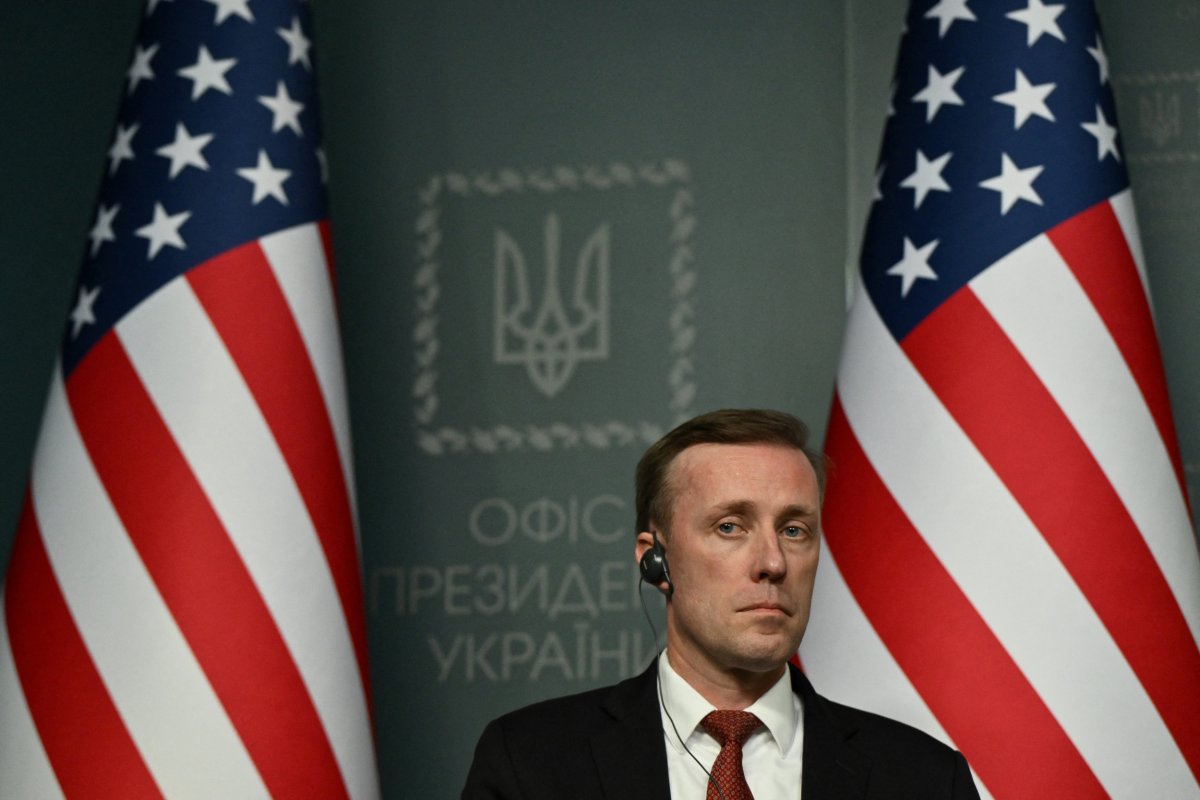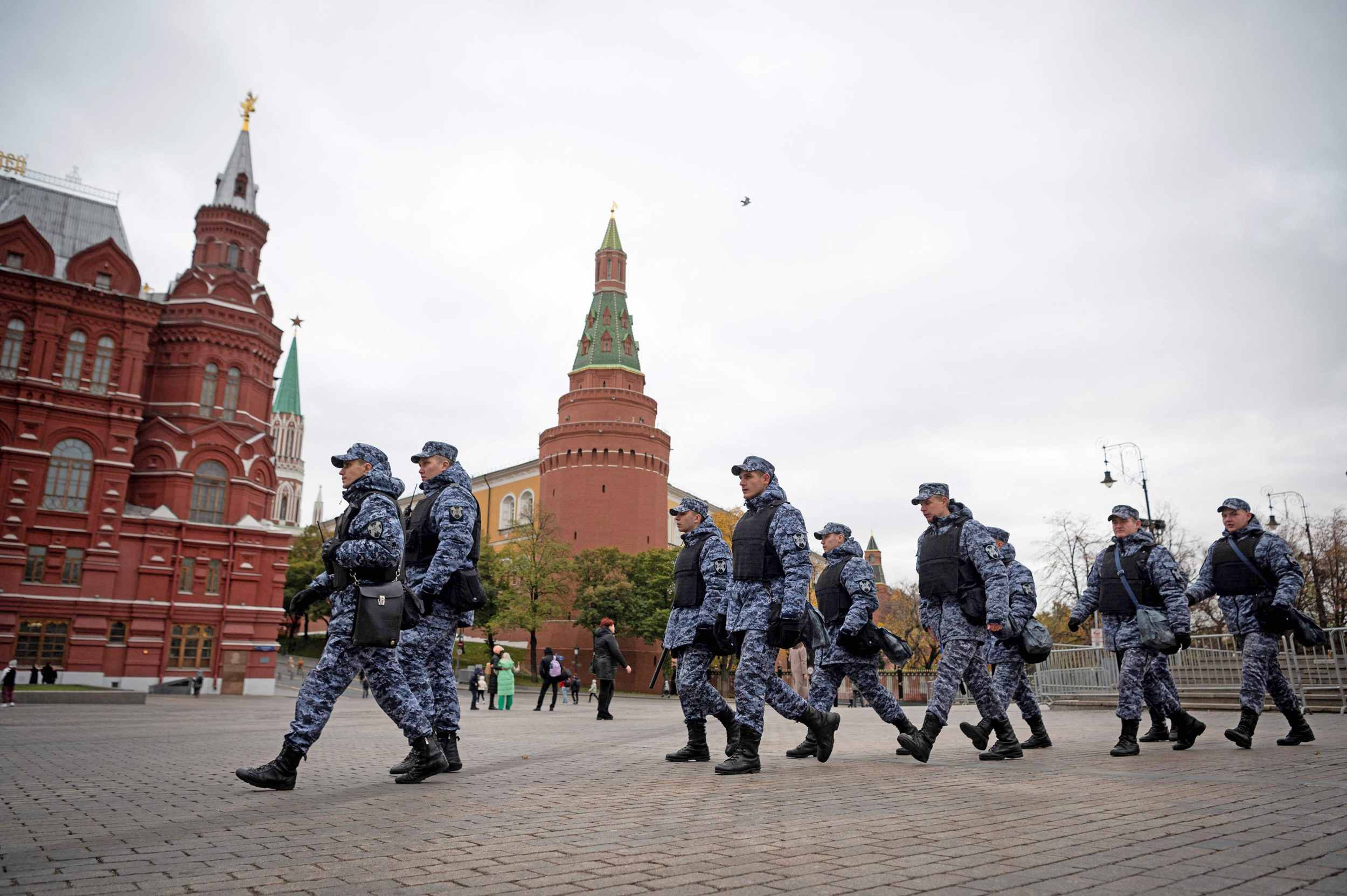Russian drones and missiles again fell on targets across Ukraine on Thursday night in one of the most-intense bombardments of the two-year war, an attack that President Volodymyr Zelensky described as “terror” bombing.
The attack saw 88 missiles and 63 Shahed drones launched at Ukraine, of which 37 and 55 were shot down, respectively. Strikes and blackouts were reported in Kyiv, Kharkiv, Dnipropetrovsk, Vinnytsya, Khmelnytskiy, Ivano-Frankivsk, Poltava, Odesa, and Lviv regions, as the Russian munitions targeted the country’s energy network.
Among the targets was Ukraine’s largest hydroelectric plant; the DniproHES dam in the southern city of Zaporizhzhia. Its hydraulic structures and the dam itself were hit, according to state hydropower company Ukrhydroenergo, though it said that there was no risk of a breach.
The Zaporizhzhia Nuclear Power Plant (ZNPP)—occupied by Russian troops since March 2022 and at constant risk of disaster since—was also impacted. State-owned nuclear power corporation Energoatom reported that a power line connecting the plant to the national grid was severed in the Thursday-night bombardment.
Energoatom head Petro Kotin said: “This situation is extremely dangerous and may result in an emergency. If the last line of communication with the national power grid is disconnected, ZNPP will be in another blackout, which is a serious violation of the conditions for safe operation of the plant.”

Firefighters extinguish a fire at an electrical substation after a missile attack in Kharkiv, on March 22, 2024. Russia launched a massive drone and missile barrage against Ukraine’s energy network overnight on Thursday.
Firefighters extinguish a fire at an electrical substation after a missile attack in Kharkiv, on March 22, 2024. Russia launched a massive drone and missile barrage against Ukraine’s energy network overnight on Thursday.
SERGEY BOBOK/AFP via Getty Images
Energy Minister German Galushchenko said the attack was the “largest-scale” to date. “The goal is not just to damage, but to try again, like last year, to cause a large-scale failure of the country’s energy system,” he wrote on Facebook.
Zelensky said Russia “is at war against people’s ordinary lives,” offering his condolences to those hurt and killed in the latest attack. “The world sees the targets of Russian terrorists as clearly as possible: power plants and energy supply lines, a hydroelectric dam, ordinary residential buildings, even a trolleybus,” Zelensky added.
Russia has long said that its targeting of energy infrastructure is legitimate and intended to weaken Ukraine’s military. It denies intentionally targeting civilians.
Infrastructure Duel
The renewed bombardment of Ukrainian cities comes as Kyiv wages a long-range drone strike campaign against Russian oil infrastructure, and as Russian rebels under Ukrainian military command press new cross-border raids. They also follow President Vladimir Putin‘s choreographed weekend victory to secure a sixth term in power.
The Financial Times newspaper in the U.K. reported—citing three unnamed sources familiar with the discussions—on Friday that the White House has asked Ukraine to halt its crusade against Russia’s oil industry. President Joe Biden‘s administration reportedly fears that the attacks are driving up global oil prices ahead of the U.S. presidential election and may provoke retaliation from Moscow against pipelines and other energy infrastructure used by Western powers.
Newsweek has contacted the National Security Council and the State Department by email to request comment.
The report prompted frustration in Ukraine. “The truth is that we are fighting for our survival against Russia with our hands tied behind our backs,” Oleksandr Merezhko—a member of the Ukrainian parliament and chair of the body’s foreign affairs committee—told Newsweek early on Friday.
“The truth is that it’s hard to win a war—including a war of attrition—when your enemy can deliver strikes on your territory, and you cannot respond in kind. I hope that our U.S. friends understand this,” Merezhko added.

National Security Advisor Jake Sullivan takes part in a press conference in Kyiv, Ukraine, on March 20, 2024. The U.S. is reportedly pressuring Ukraine to end its long-range drone strike campaign against Russian oil facilities.
National Security Advisor Jake Sullivan takes part in a press conference in Kyiv, Ukraine, on March 20, 2024. The U.S. is reportedly pressuring Ukraine to end its long-range drone strike campaign against Russian oil facilities.
GENYA SAVILOV/AFP via Getty Images
“To win an asymmetric war, we need to be more creative and Western politicians should get rid of the ‘red lines’ in their mind artificially imposed by the enemy,” Merezhko added. “Some politicians have allowed themselves to be scared by Putin, by his blackmail.”
Relations between Kyiv and its most-important foreign backer have been strained in recent months, as Washington, D.C.’s pre-election partisan sparring strands a bill containing $60 billion in military aid for Ukraine’s stretched forces.
National security adviser Jake Sullivan traveled to Kyiv this week to assure Zelensky’s government that Biden is “fighting every day” to push the package through the House, the Senate having already approved it in February.
However, American political maneuvers have existential significance for Ukraine, whose troops have been forced to retreat on the eastern front due to a lack of munitions.
“Ukraine will stop bombing Russian oil refineries on one condition: the bill on supporting Ukraine should pass in the House of Representatives,” Ivan Stupak—a former officer in the Security Service of Ukraine (SBU) and now an adviser to the Ukrainian parliament’s national security, defense and intelligence committee—told Newsweek.
“If it’s for real, that shows the total weakness and hypocrisy of the U.S.,” Stupak said of the Financial Times report. “Allies in Europe should start developing their own nuclear weapons because the U.S. is dysfunctional and unreliable, and has already failed to deliver military support to Ukraine.”
The latest wave of attacks could be “some kind of revenge for the shelling of Belgorod and the activities of the Russian volunteer corps in the Belgorod region,” Stupak said in reference to the ongoing cross-frontier skirmishes.
Putin, Stupak added, will want to sell the assault as a “huge revenge and show his strength.” However, he said, “for me, it shows Russian weakness and it smells like an act of despair.”
Newsweek is committed to challenging conventional wisdom and finding connections in the search for common ground.
Newsweek is committed to challenging conventional wisdom and finding connections in the search for common ground.
